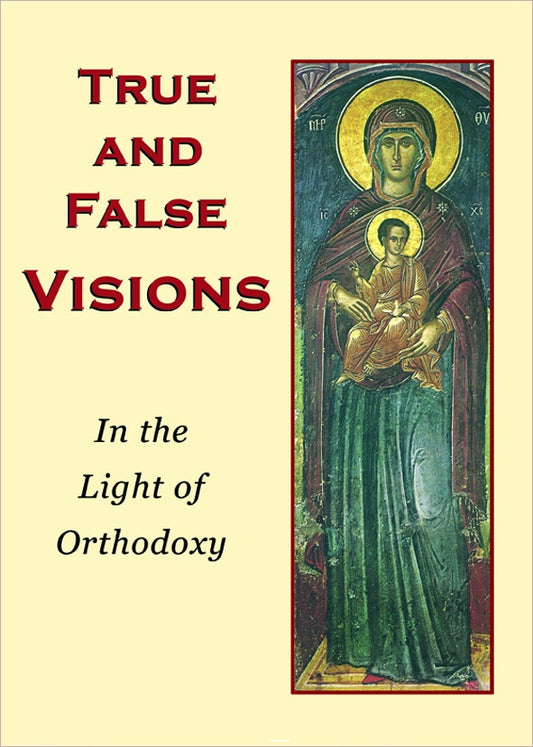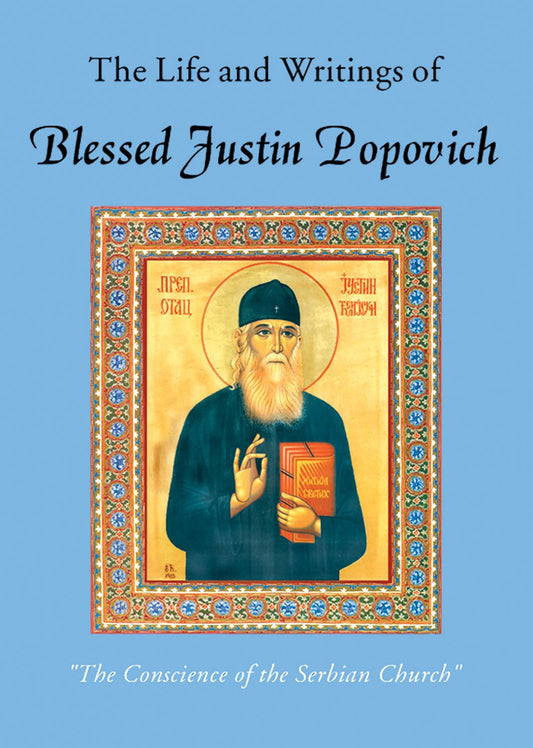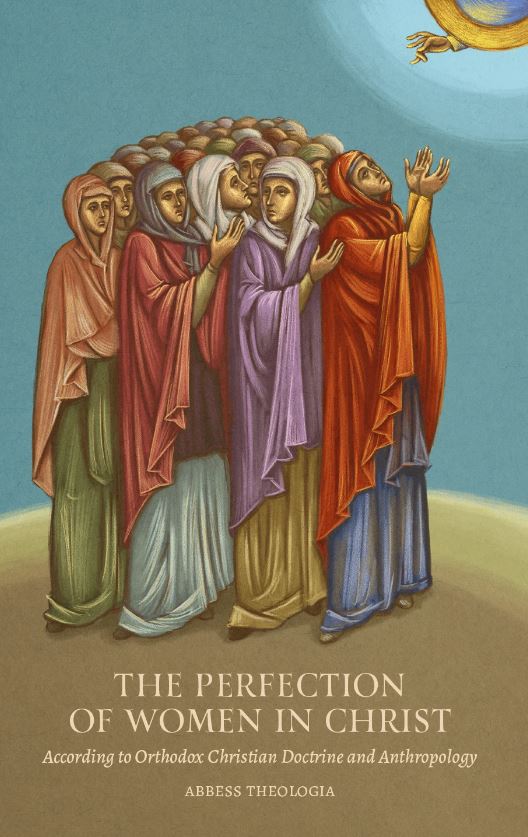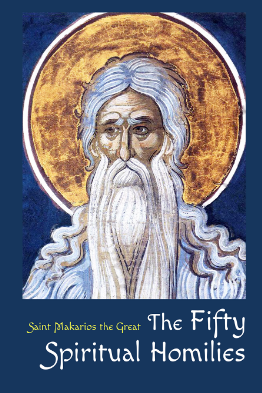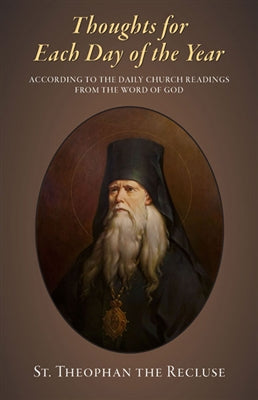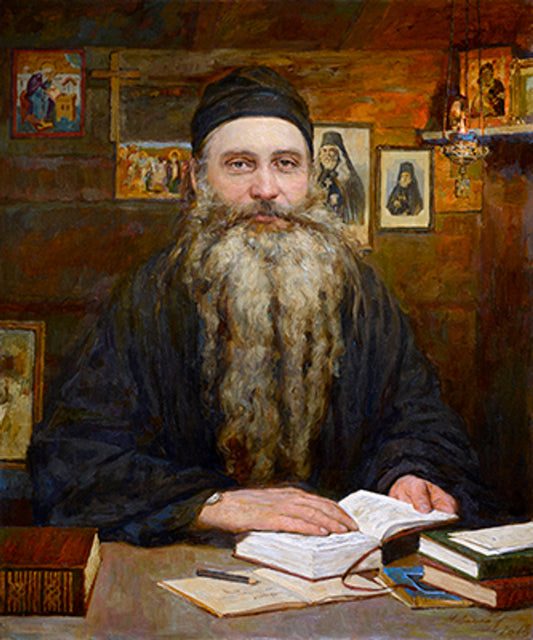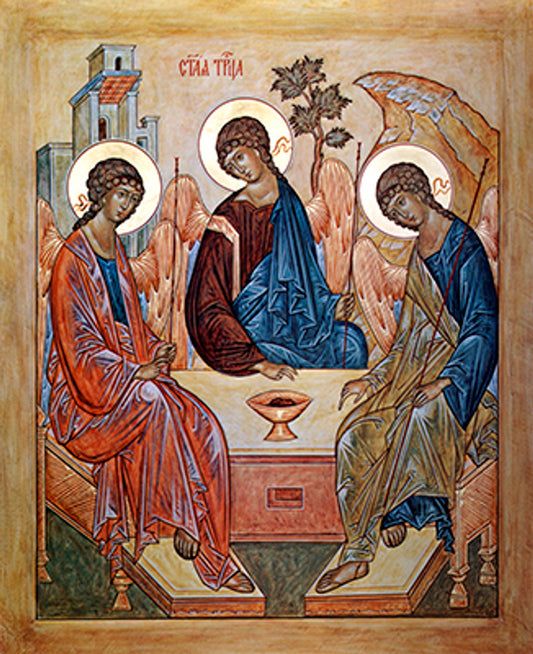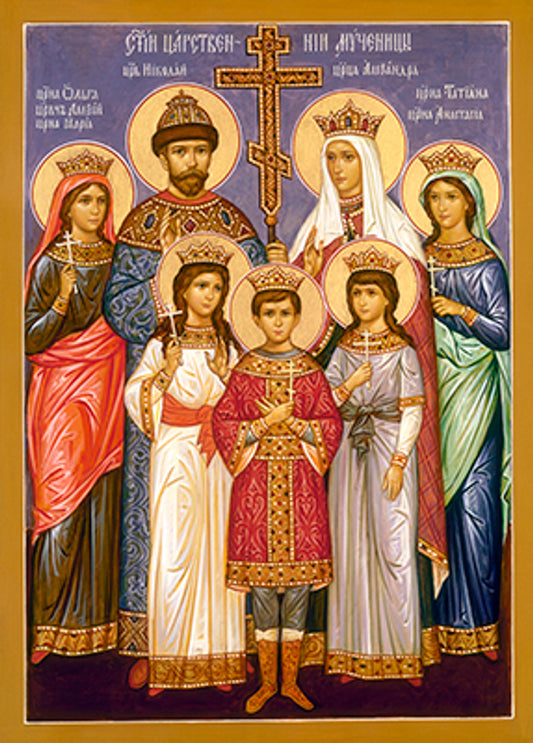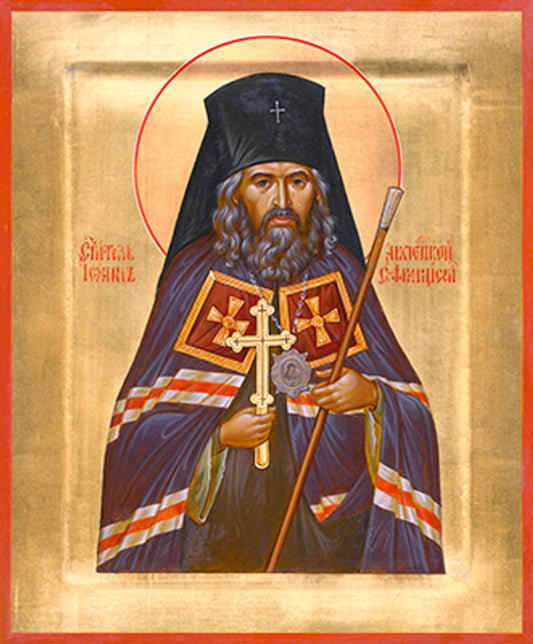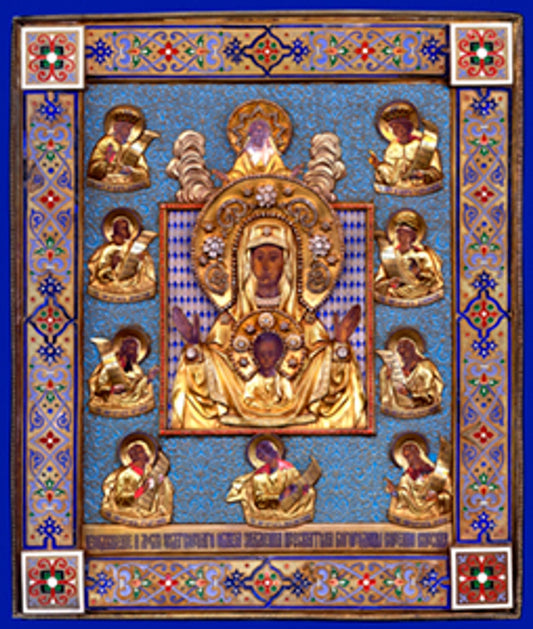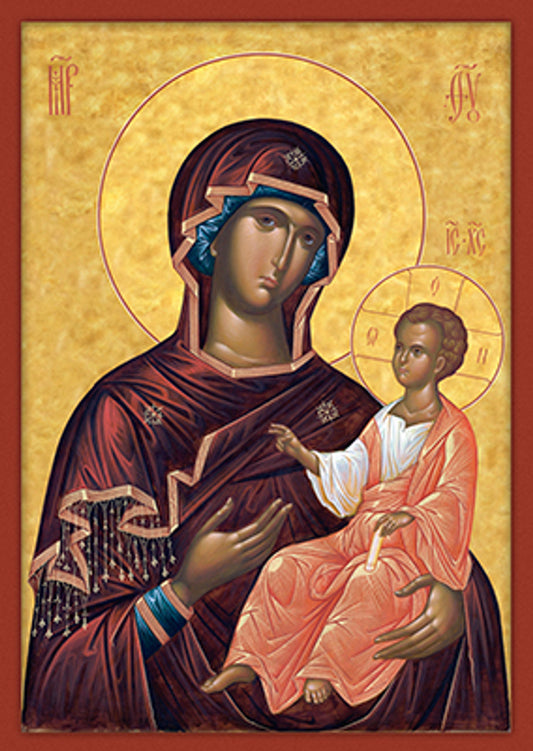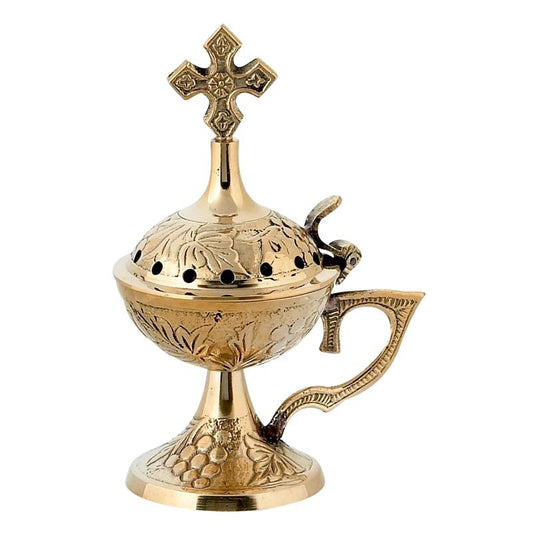
Just Arrived!
-
Genesis, Creation and Early Man: The Orthodox Christian Vision
Regular price $45.00Regular priceUnit price / per -
Without Being Crucified We Will Not Be Resurrected We Will Not Be Glorified
Regular price $20.00Regular priceUnit price / per -
Union with Rome?
Regular price $9.00Regular priceUnit price / per -
Monastery Raw Honey
Regular price From $8.00Regular priceUnit price / per -
An Athonite Gerontikon
Regular price $52.00Regular priceUnit price / per -
A Spiritual Psalter or Reflections on God (Paperback)
Regular price $20.00Regular priceUnit price / per -
Lives of the Saints 10 (June) by St. Demetrius of Rostov (Harcover)
Regular price $39.00Regular priceUnit price / per -
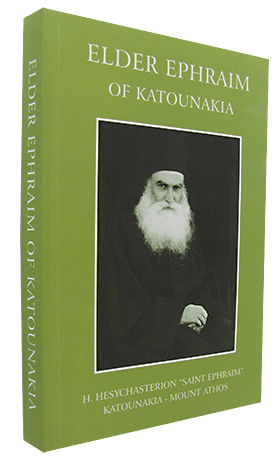 Sold out
Sold outElder Ephraim of Katounakia
Regular price $33.00Regular priceUnit price / per -
Goat Milk Lavender Liquid Soap
Regular price $10.00Regular priceUnit price / per -
True and False Visions in the Light of Orthodoxy
Regular price $10.00Regular priceUnit price / per -
The Life and Writings of Blessed Justin Popovich
Regular price $10.00Regular priceUnit price / per -
Diptych of Christ and Theotokos - Style No. 1 (Large with Soft Case)
Regular price $33.75Regular priceUnit price / per -
Archbishop Luke: A Saint, Pastor, and Physician Surgeon
Regular price $45.00Regular priceUnit price / per -
Father Philotheos Zervakos: Autobiography, Homilies and miracles
Regular price $23.00Regular priceUnit price / per -
50-knot Prayer Rope (Synthetic with Cross and Four Beads)
Regular price $6.75Regular priceUnit price / per -
Triptych of Theotokos with Angels (small)
Regular price $11.25Regular priceUnit price / per -
St. Seraphim of Sarov Mounted Jordanville Icon
Regular price From $25.00Regular priceUnit price / per -
Words of the Heart
Regular price $32.00Regular priceUnit price / per -
Wooden Standing Cross - Style No. 01 (with Icon of Crucifixion and Decorative Insets)
Regular price $78.50Regular priceUnit price / per -
Perfection of Women in Christ
Regular price $11.95Regular priceUnit price / per -
Man of God: St. John of Shanghai and San Francisco
Regular price $21.00Regular priceUnit price / per -
Holy Cross Incense - Byzantium
Regular price From $9.00Regular priceUnit price / per -
Holy Cross Incense - Cassia
Regular price From $8.00Regular priceUnit price / per -
The Fifty Spiritual Homilies
Regular price $24.00Regular priceUnit price / per -
Thoughts for Each Day of the Year
Regular price $18.00Regular priceUnit price / per
Bestselling Icons
-
Theotokos (Iveron-Hawaii) Mounted Jordanville Icon
Regular price From $18.00Regular priceUnit price / per -
Christ (Saver of Souls) Mounted Jordanville Icon
Regular price From $25.00Regular priceUnit price / per -
Fr. Seraphim Rose Mounted Jordanville Portrait
Regular price From $20.00Regular priceUnit price / per$40.00Sale price From $20.00Sale -
Triptych for Car with Savior, Theotokos and St. Nicholas
Regular price $3.95Regular priceUnit price / per -
Old Testament Holy Trinity Mounted Jordanville Icon
Regular price From $25.00Regular priceUnit price / per -
Royal Martyrs Mounted Jordanville Icon
Regular price From $25.00Regular priceUnit price / per -
St. John of San Francisco Mounted Jordanville Icon
Regular price From $25.00Regular priceUnit price / per -
Guardian Angel Mounted Jordanville Icon
Regular price From $25.00Regular priceUnit price / per -
St. Xenia Mounted Jordanville Icon
Regular price From $25.00Regular priceUnit price / per -
Theotokos (Iveron-Montreal) Mounted Jordanville Icon
Regular price From $18.00Regular priceUnit price / per$40.00Sale price From $18.00Sale -
St. Mary of Egypt Mounted Jordanville Icon
Regular price From $25.00Regular priceUnit price / per -
Triptych for Car - Style No. 2
Regular price $3.95Regular priceUnit price / per -
Theotokos (Kursk Root) Mounted Jordanville Icon
Regular price From $25.00Regular priceUnit price / per -
Triptych for Car - Style No. 1
Regular price $4.95Regular priceUnit price / per -
Theotokos (Saver of Souls) Mounted Jordanville Icon
Regular price From $25.00Regular priceUnit price / per -
St. Seraphim of Sarov Mounted Jordanville Icon
Regular price From $25.00Regular priceUnit price / per -
St. Joseph the Hesychast Mounted Jordanville Icon
Regular price From $25.00Regular priceUnit price / per -
New Martyrs of Russia Mounted Jordanville Icon
Regular price From $25.00Regular priceUnit price / per -
St. Elizabeth the New-Martyr Mounted Jordanville Icon
Regular price From $25.00Regular priceUnit price / per -
St. Paisios of Mount Athos Mounted Jordanville Icon
Regular price From $25.00Regular priceUnit price / per -
Theotokos (Of the Sign) Canvas Mounted Icon
Regular price From $38.00Regular priceUnit price / per -
St. George - Byzantine Icon
Regular price $12.00Regular priceUnit price / per -
Archangel Michael Mounted Jordanville Icon
Regular price From $25.00Regular priceUnit price / per -
Russian Icon: St. Paisios of Mount Athos
Regular price $15.00Regular priceUnit price / per -
 Sold out
Sold outTriptych for Car - Style No. 8
Regular price $5.75Regular priceUnit price / per
Baptismal Crosses
-
Theotokos Necklace in Velvet Box 01
Regular price $16.00Regular priceUnit price / per$32.00Sale price $16.00Sale -
Metallic Ring - Style No. 02 - (Κυριε Ιησου Χριστε, ελεησον με)
Regular price $3.00Regular priceUnit price / per -
Sterling Silver Cross - Style No. 393 (with Icon of Crucifixion)
Regular price $15.00Regular priceUnit price / per -
Sterling Silver Cross - Style No. 541 (with Icon of Crucifixion and Inscription)
Regular price $14.00Regular priceUnit price / per -
 Sold out
Sold outSmall Baptismal Cross in Box 01
Regular price $5.00Regular priceUnit price / per -
Sterling Silver Chain - Style No. 12 (Solid Silver or Gold Plated)
Regular price From $27.50Regular priceUnit price / per -
Soldier Cross™ Sterling Silver
Regular price $68.00Regular priceUnit price / per -
Sterling Silver Chain - Style No. 01 (Anchor 0.4 mm)
Regular price From $28.00Regular priceUnit price / per -
Soldier Cross™ Sterling Silver with Blue Enamel
Regular price $74.00Regular priceUnit price / per -
Sterling Silver Chain - Style No. 06 (Curb 0.4 mm)
Regular price From $36.00Regular priceUnit price / per
Prayer Ropes
-
50-knot Russian-style Prayer Rope in Multiple Colors
Regular price From $7.32Regular priceUnit price / per -
28-bead Black Ebony Prayer Rope with Cross and Metal Accents
Regular price $13.00Regular priceUnit price / per -
50-Step Leather Lestovka Prayer Rope
Regular price $40.00Regular priceUnit price / per -
100-bead Black Ebony Prayer Rope with Crosses
Regular price $21.00Regular priceUnit price / per -
100-knot Russian-style Prayer Rope with Blue or Red Beads
Regular price $12.00Regular priceUnit price / per -
28-bead Black Ebony Prayer Rope Bracelet with Cross
Regular price $11.00Regular priceUnit price / per -
33-Bead Black Ebony Prayer Rope with Crosses
Regular price $15.00Regular priceUnit price / per -
12-bead Black Ebony Finger Prayer Rope with Cross
Regular price $4.00Regular priceUnit price / per -
100-bead Bethlehem Olive Wood Prayer Rope with Cross
Regular price $29.00Regular priceUnit price / per -
33-bead Wooden Prayer Rope with Gold Cross
Regular price $6.75Regular priceUnit price / per -
33-knot Prayer Rope w/ Single Bead
Regular price $18.68Regular priceUnit price / per -
100-bead Black Wooden Prayer Rope with Metal Cross
Regular price $10.00Regular priceUnit price / per -
28-bead Bethlehem Olive Wood Prayer Rope with Cross
Regular price $12.00Regular priceUnit price / per -
33-knot Prayer Rope with Accents
Regular price $19.25Regular priceUnit price / per -
Panagia's Pearls White Prayer Bracelet
Regular price $27.00Regular priceUnit price / per
Candles
-
7-day Vigil Candle
Regular price $4.95Regular priceUnit price / per -
2A: Bundle of Candles
Regular price $19.95Regular priceUnit price / per -
Votive Candles - Box of 6
Regular price $15.95Regular priceUnit price / per -
Glass for votive candles
Regular price From $2.95Regular priceUnit price / per -
1B: Bundle of Candles
Regular price $19.95Regular priceUnit price / per -
3E: Bundle of Candles
Regular price $19.95Regular priceUnit price / per -
2B: Bundle of Candles
Regular price $19.95Regular priceUnit price / per -
3B: Bundle of Candles
Regular price $19.95Regular priceUnit price / per -
Tealights in Plastic Cups (pack of 10) (candles)
Regular price $11.95Regular priceUnit price / per -
2C: Bundle of Candles
Regular price $19.95Regular priceUnit price / per
Incense
-
Roll of 33mm Three Kings Charcoal
Regular price $3.50Regular priceUnit price / per -
Holy Cross Incense - Old Church
Regular price From $10.00Regular priceUnit price / per -
Holy Cross Incense - Byzantium
Regular price From $9.00Regular priceUnit price / per -
Box of 33mm Three Kings Charcoal
Regular price $22.00Regular priceUnit price / per -
Holy Cross Incense - Damask Rose
Regular price From $10.00Regular priceUnit price / per -
Roll of 22mm Scent of Byzantium Charcoal
Regular price $2.00Regular priceUnit price / per -
Holy Cross Incense - Catacombs
Regular price From $10.00Regular priceUnit price / per -
Box of 40mm Three Kings Charcoal
Regular price $33.00Regular priceUnit price / per -
St. Elizabeth Incense - Sarov Forest
Regular price From $15.40Regular priceUnit price / per -
Roll of 40mm Three Kings Charcoal
Regular price $4.00Regular priceUnit price / per -
Frankincense & Myrrh Blend (Ethiopian) - Pure Resin Jordanville Incense
Regular price From $6.00Regular priceUnit price / per -
Ethiopian Frankincense Siftings - Pure Resin Jordanville Incense
Regular price From $3.00Regular priceUnit price / per -
Ethiopian Frankincense Tears - Pure Resin Jordanville Incense
Regular price From $5.00Regular priceUnit price / per -
Hand Censer 24
Regular price From $18.50Regular priceUnit price / per -
Holy Cross Incense - Bethlehem Rose
Regular price From $8.00Regular priceUnit price / per -
St. Elizabeth Incense - Jordanville
Regular price From $12.85Regular priceUnit price / per -
Holy Cross Incense - Orange Blossom
Regular price From $8.00Regular priceUnit price / per -
Holy Cross Incense - Cassia
Regular price From $8.00Regular priceUnit price / per -
Bethlehem Incense, Dochiariou Monastery
Regular price From $8.00Regular priceUnit price / per

Church Supplies
Upper Store

English Books
Lower Store

Russian Books
Lower Store
NaN
/
of
-Infinity










